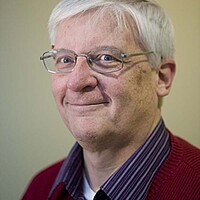Ding-dong! Living Goods calling with life-changing products
Before founding Living Goods, Chuck Slaughter did his homework. That included spending time as an Avon lady.
The nonprofit organization Living Goods uses an Avon-like door-to-door model to deliver low-cost, high-impact drugs and much-needed basic household goods to families in Uganda and Kenya. Last year 975 of these traveling micro-entrepreneurs treated more 200,000 children for deadly diseases, provided products and support for 28,000 pregnant women, and sold more than 17,000 clean-burning cook stoves.
The mission of Living Goods, to deliver "life-changing products to the doorsteps of the poor," also means providing anti-malaria treatments, fortified foods, and even solar lamps, reading glasses, soaps, and sanitary pads that can dramatically improve the health and well-being of families who live on a few hundred dollars per year.
At the same time, Living Goods views its clients not as helpless victims but as resilient entrepreneurs and value-conscious consumers.
Mr. Slaughter comes from a background in business and entrepreneurship, having founded and run TravelSmith, the travel clothing and accessories company. He sold it in 2004 and began to look for a new challenge.
He didn't have long to wait. The problem of helping underserved people in Africa soon caught his attention. His "ah ha" moment came when he realized many Africans had trouble getting from remote villages to a store. They needed the store to come to them.
His idea: "Let's get [sales] people out of their chairs, out of their stores, out into the community, knocking on doors, going to schools, churches, so forth," he says.
That's when Avon's long-running, highly successful model came to mind. Much of Africa today, he realized, bears resemblance to late 19th-century America, when Avon was founded. In rural America 120 years ago the "poor had little access to [high-]quality products," he says. It was also a time and place "where women wanted a source of cash income, but they couldn't go down to WalMart. And there were strong social connections."
Slaughter decided to become an Avon lady himself for a time to learn the model. "That was the beginning of my research," he says. "We shamelessly borrowed from Avon."
Today Living Goods representatives, usually local women, earn important income for their families while providing useful products and health information to other African women. Its approach has proved so promising that this year Slaughter and Living Goods were named as one of 24 global social entrepreneurs of the year by the Schwab Foundation for Social Entrepreneurship in Geneva, Switzerland.
While the Avon model may be more than a century old, a relatively new piece of technology – the mobile phone – is putting a new twist on Living Goods' door-to-door sales. Just a few years ago only about 35 percent of the people in Uganda had mobile phones; today it's about 80 percent. And per-minute calling charges have dropped drastically too.
Customers can call their Living Goods representative and make orders for delivery to their door; just as important, Living Goods can text its customers with news about its products and how to use them properly.
Living Goods representatives receive two and a half weeks of training, along with regular refresher courses. Each is issued a "Business in a Bag" that includes a uniform, T-shirt, hat, and apron, all with the Living Goods logo. They also receive a display case to put in their homes to create a home store, and a Living Goods sign to put on their door. Each representative wears a badge with her phone number so that clients can easily jot it down.
As it grows Living Goods also expects to become known as a highly trusted "brand." Africa confronts two major problems in delivering drugs to patients. At local clinics popular drugs are often out of stock. And many of the drugs in circulation are counterfeits. Living Goods has addressed both problems by setting up its own distribution network and doing independent testing on the drugs it sells.
While Living Goods maintains an office in San Francisco, staff members spend 30 to 60 percent of their time in Africa. The organization spends little time or resources on fund-raising. No Kickstarter campaigns.
"We don't do grass-roots fundraising," Slaughter says. Instead, it goes to a few big donors "who are energized like we are about addressing social problems at great scale using the tools of business.
"Almost all of them are successful business people" who want to apply their money and business skills to solving social problems, he says.
Living Goods, Slaughter says, doesn't even think of itself a charity, though it is a registered nonprofit.
"Nothing about what we do is a handout," he says. "It's really about empowerment. It's about giving people the tools they need to improve on their own."
It's also a proponent of the "please steal this idea" philosophy. Slaughter knows that Living Goods can't solve the immense problems of Africa on its own. But he hopes it can become a successful model that other organizations will want to adopt and adapt for themselves.
"If you want to make a difference on a big scale," he says, "that's the only way to go about it."







